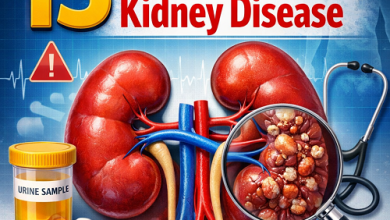Over 1,700 Israelis Infected as Measles Outbreak Escalates Nationwide

A measles outbreak sweeping Israel has now infected more than 1,700 people, according to health officials — a surge that has prompted emergency responses from hospitals and the Health Ministry as authorities race to contain the spread and protect vulnerable populations. The outbreak, which began earlier this year and has centered in several cities and communities, is a stark reminder of how quickly a highly contagious virus can return when vaccination coverage falls short and pockets of under-immunized people remain.
The scale and scope of the outbreak
Health Ministry briefings and media reports place the confirmed case count at roughly 1,700 since the outbreak began in the spring, but officials warn the real number is likely higher because many mild cases go unreported and because community surveillance has detected ongoing transmission in several population centers. Hospitals around the country have seen a sharp rise in admissions related to measles complications, with hundreds hospitalized so far and dozens requiring intensive care.
Officials told lawmakers that 437 people have been hospitalized since the outbreak began, including about 39 patients in intensive care units, underscoring both the severity of some cases and the strain on hospital resources. The Health Ministry’s estimates — which are based on confirmed tests, hospital admissions and community reports — suggest substantial under-reporting in some areas.
Who is being affected?
The outbreak has disproportionately affected young children and communities with lower vaccination coverage. Multiple deaths of very young children have been reported in recent weeks, and health officials have described several pediatric intensive care unit admissions involving toddlers with severe complications. Public reporting indicates that most of the fatalities so far involved children under the age of two.
Geographically, the Health Ministry has designated several outbreak zones where transmission is intense. The areas most frequently named in official statements and media accounts include Jerusalem and its surrounding neighborhoods, Bnei Brak, Beit Shemesh, Modi’in Illit, Ashdod, Safed, Kiryat Gat and other localities with close-knit communities or gaps in vaccine uptake. These areas have seen clusters of cases, sometimes linked to communal events, travel, or high household density.
Why measles is so dangerous — and so easy to spread
Measles is among the most contagious human diseases known. A single infected person can transmit the virus to a large number of susceptible contacts, particularly in settings where people live or gather closely. The virus spreads through respiratory droplets and can linger in the air or on surfaces for hours after an infected person has been in an enclosed space. Because of that, even brief exposures in clinics, public transport or communal gatherings can seed new chains of transmission.
Clinically, measles usually begins with fever, cough, runny nose and red, watery eyes, followed a few days later by a characteristic red, blotchy rash that spreads from the face to the rest of the body. Complications can include pneumonia, encephalitis (inflammation of the brain), severe dehydration and ear infections. Infants, pregnant people, individuals with weakened immune systems and those who haven’t received two doses of the measles-containing vaccine are at the highest risk of severe illness and death.
Roots of the resurgence
Public health experts point to a handful of overlapping reasons for measles’ return in Israel and elsewhere:
- Gaps in vaccination coverage: Measles can be eliminated only when very high levels of population immunity are maintained. The World Health Organization recommends about 95% coverage with two doses of measles-containing vaccine to prevent outbreaks. Where coverage dips — because of access issues, vaccine hesitancy, misinformation, or disruptions to routine immunization — the virus finds pockets of susceptible people.
- Missed routine vaccinations during the pandemic era: Across many countries, routine childhood vaccination rates slipped during and after the COVID-19 pandemic, leaving cohorts of children partially or wholly unvaccinated. Those gaps create vulnerable pools that allow measles to spread when it is introduced.
- International travel and importations: Measles remains endemic in parts of the world and frequent international travel can introduce the virus into communities with vulnerable people. When importations land in a community with lower vaccination rates, outbreaks can quickly follow.
- Communal spread in high-contact settings: In Israel, as in other countries, outbreaks often occur in communities where close social and family networks lead to rapid person-to-person transmission, including schools, religious gatherings, childcare settings and densely populated neighborhoods.
What authorities are doing now
The Health Ministry has ramped up surveillance and is coordinating vaccination drives, targeted outreach and public information campaigns in affected communities. Authorities have identified outbreak zones and urged families to check vaccination records and bring unvaccinated or partially vaccinated children to clinics for a measles-containing vaccine (usually given as part of the MMR — measles, mumps and rubella — vaccine). Mobile vaccination units, extra clinic hours and school-based campaigns have been used in past outbreaks to quickly raise immunity in high-risk neighborhoods.
Hospitals and pediatric ICUs have also increased preparedness — freeing up beds, stockpiling supportive care supplies, and reinforcing infection-control measures to prevent nosocomial (hospital-acquired) spread. Contact tracing teams are attempting to identify exposed persons so they can be tested, quarantined if needed, or offered post-exposure immunization when appropriate.
Public guidance: what people should do
Health agencies consistently emphasize that vaccination is the most effective defense:
- Check vaccination status: Everyone should confirm they — and their children — are up to date with two doses of measles-containing vaccine (MMR). One dose provides good protection; two doses provide excellent protection (roughly 97% effective). Those unsure about their status should consult their healthcare provider.
- Young children and infants: Infants younger than the routine first MMR dose may be offered early vaccination during outbreaks depending on public-health guidance. Parents of infants and of children with chronic health problems should seek advice from their pediatricians about additional precautions.
- Recognize symptoms and isolate: If symptoms consistent with measles appear (fever, cough, runny nose, red eyes, followed by rash), people should contact health services before visiting clinics or emergency departments to reduce the risk of spreading infection in waiting rooms. Suspected cases should avoid public places and keep away from vulnerable individuals until advised by health authorities.
- Support public-health measures: Communities can help by participating in vaccination clinics, sharing accurate information about vaccine safety, and following instructions from local health authorities during an outbreak.
The human cost: hospital strain and tragic losses
Beyond the case counts, the outbreak has a human toll. Several very young children have died in recent weeks, and clinicians report heartbreaking ICU admissions of toddlers without prior chronic illnesses. These deaths — reminders that measles is not a benign childhood illness — have reinforced calls from medical professionals for fast, coordinated vaccination campaigns and better outreach to at-risk communities. The emotional and practical burden on families and hospitals is heavy, as pediatric units care for critically ill children while trying to shield other patients from exposure.
International context: a global resurgence
Israel’s outbreak is part of a broader global resurgence of measles in 2024–2025. Several regions and countries have reported large outbreaks as routine immunization coverage lags and misinformation about vaccines continues to circulate. The World Health Organization and partners have repeatedly warned that missed vaccinations during the pandemic and persistent immunity gaps could lead to more outbreaks — a scenario unfolding in multiple countries this year. Health experts say the solution is straightforward in principle (catch up on missed doses), but complicated in practice because of logistics, hesitancy and competing health priorities.
What scientists and public-health experts recommend
Experts stress several priorities:
- Rapid vaccination catch-up campaigns targeted at children and communities with low coverage, making vaccines easy to access (extended clinic hours, mobile teams, school programs).
- Clear, community-tailored communication to counter misinformation, build trust, and explain the risks of measles and the safety profile of the MMR vaccine. Messaging that respects local cultural contexts works better than broad one-size-fits-all campaigns.
- Strengthened surveillance and rapid response to detect cases early and limit spread through contact tracing and post-exposure measures.
- Support for hospitals and ICUs to handle surges in pediatric admissions, including ensuring equipment and trained staff are available.
Questions and controversies
Outbreaks often re-ignite debates about vaccination policy, exemptions, and the role of enforcement versus persuasion. Some advocacy groups push for stricter measures to limit exemptions and boost school-entry vaccine checks, while others caution that heavy-handed approaches can backfire in communities with pre-existing mistrust. Public-health authorities say that while policy options vary by country and community, the immediate imperative is to raise protection quickly among those at greatest risk.
Looking ahead
The immediate goal for Israeli health authorities is to blunt transmission, protect infants and other vulnerable people, and prevent further deaths — all while preserving hospital capacity and maintaining routine health services. If vaccination catch-up efforts succeed and transmission chains are interrupted, the outbreak can be contained. But the episode also highlights a longer-term lesson for global public health: measles exploits even small immunity gaps, and sustaining high vaccination coverage must remain a priority to keep this once-conquered disease at bay.
If you or someone in your care has symptoms
Contact your healthcare provider or local health authorities immediately, avoid public places, and follow instructions about testing and isolation. If you’re unsure about vaccination status, a medical clinic can check records and offer vaccination if needed.




